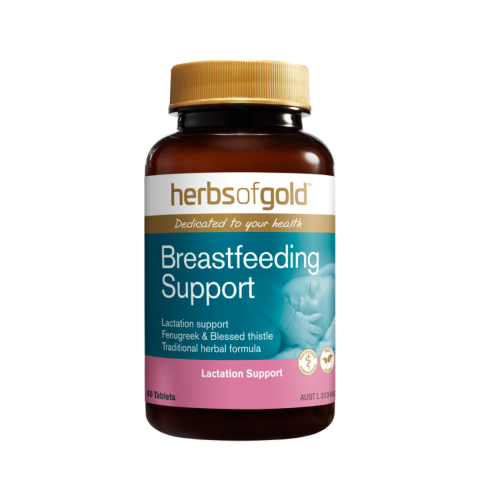HEALTH TOPICS
The Wonderful Benefits of Breastfeeding
Posted by: Kelsea Bell - Gr8 Health Naturopath
Since 2011, the month of August has been dedicated to showing support to breastfeeding women worldwide. Breast milk is the first source of food for infants, and the practice of breastfeeding can provide wonderful benefits to both mum and baby. We understand there are times and situations where new mums are unable to breastfeed. Every woman’s journey with breastfeeding is different and what matters most is the baby is fed.
This article highlights the fantastic benefits breastfeeding can provide, along with some of the challenges new mothers can face. You will learn which formula is best, along with our top tips for breastfeeding mums who need extra support.
Breast milk composition
The composition of breast milk changes depending on the stage of lactation, making breastmilk a truly individualised medicinal food. Breastmilk is predominantly made up of water, along with carbohydrates in the form of lactose, fat, and protein.
It is the carbohydrates within breastmilk that provide some of the amazing benefits in boosting a baby’s immune system. These are known as human milk oligosaccharides (HMO’s), which are prebiotics that feed the good bacteria in the baby’s digestive tracts. The growth of this bacteria is essential for their immune system and play a part in optimising digestion, metabolism, and psychological and mental health outcomes.
Human milk contains two types of proteins: whey and casein. The approximate average throughout the normal course of breastfeeding is 60% whey and 40% casein. This balance of the proteins allows for quick and easy digestion. These proteins help a baby grow and develop and provide amazing protective properties against bacterial and viral infections. The fat content within breastmilk plays a vital part in building a baby’s nervous system, as well as aiding brain and eye development.
Benefits of breastfeeding
Builds Baby’s Immune system
Breast milk is loaded with antibodies that help your baby’s immune system guard against viruses and bacteria that cause disease. The main antibody in breast milk is called secretory immunoglobulin A (IgA). Secretory IgA is present in low quantities in newborns and high amounts in colostrum, the first milk your body produces. Secretory IgA protects the baby from getting sick by forming a protective layer in the baby’s nose, throat, and digestive system. Over time, the level of antibodies in your breast milk decreases as your baby’s immune system makes more of its own antibodies.
Studies have also found that babies who are breastfed for at least four months had lower risk of food allergies, eczema, and asthma early in life.
Promotes a healthy microbiome
Breastfeeding plays a vital role in the development of the gastrointestinal microbiome in babies. As mentioned previously, there are a vast variety of prebiotics in breastmilk that encourages the growth of good bacteria in the digestive system. Seeding the newborns gut with these components promotes a healthy response to inflammation, to commensal bacteria, and initiates the development of host defence.
Better development of a sleep-wake cycle
The composition of breast milk changes throughout the day. This means that the morning and evening milk are different from each other. In morning time feeds, your baby ingests energising hormones such as cortisol. Whereas in night time feeds, the milk is higher in our sleep inducing hormone melatonin. This helps to teach baby when its time to be awake or to sleep.
Reduces Mother’s Risk of Chronic Disease
Studies have found that breastfeeding mothers had greater protection against ovarian and breast cancers. There is also research showing that breastfeeding can reduce the risk of type 2 diabetes and the risk of developing hypertension and cardiovascular disease.
Promotes weight loss in Mothers
Breastfeeding burns approximately 500 more calories a day. Studies have found that women who breastfeed lose more weight than those who use formula for the first three months of a baby’s life.
Challenges of breastfeeding
Low milk supply 
The primary reason why women discontinue breastfeeding in the first few months is inadequate supply of breastmilk. Low milk supply can be caused by various factors. This includes ineffective latch, high stress and anxiety, inadequate water intake, maternal health problems and medications. Reasons for low milk supply can be quite complicated to treat. It is always best to speak with your naturopath or health care provider for advice.
Sore nipples
Breastfeeding, especially in the early days can be quite painful while your nipples get used to the process. If the baby has a poor latch (perhaps due to tongue tie or an incorrect technique) this can also cause pain, contributing to nipple damage, which lengthens the duration of pain. If the baby does not take enough nipple into their mouth it can rub against the hard palette, and this can really hurt. It is important to establish good technique from the start to reduce pain.
Mastitis
Mastitis is an infection of the milk duct in the breast. It can occur due to an infection entering the breast via broken skin on the nipple or milk duct openings. It can also be caused by going too long between feeds or not or not emptying your breasts completely at feedings. Early symptoms of mastitis can make you feel as if you are getting the flu. You may begin to get shivers and aches, along with the classic symptoms breast tenderness, skin redness/irritation, breast swelling and pain on the breasts. Thankfully there are natural methods to prevent and/or treat it, so if you are prone to this, see a naturopath for support.
Which Formula is best?
Baby formula today comes in many forms: powdered, concentrated liquid and ready-to-use varieties. This gives parents an abundance of options for feeding their newborns.
If formula is chosen, Goat’s milk formulas are recommended. This is because research has found that goat milk protein digestion is more similar to human milk than cow’s milk. This means it is easier to digest. Goat’s milk is also higher in prebiotic oligosaccharides, which are the naturally occurring carbohydrates that feed ‘good’ gut bacteria, resulting in a healthy gut microbiome. This high concentration of oligosaccharides means that goat’s milk is the closest in composition to human breast milk.
Naturopathic Support for breastfeeding
Follow a wholefoods diet
A mother’s diet plays a vital role not only in milk supply, but also the nutritional composition of breastmilk for the baby. Ensuring adequate protein and healthy fats (avocado, oily fish, nuts, seeds, olive oil, chia seeds, hemps seeds) are consumed daily, along with complex carbohydrates (brown rice, oats, sweet potato) and a variety of vegetables (4-6 serves daily are recommended). Oats, eggs, flaxseeds, brewer’s yeast, and avocado are all beneficial for promoting milk supply.
Stay Hydrated
This is one of the most important things to focus on whilst breastfeeding. Drinking at least 2.5-3L fluid daily is essential for milk supply. This can include filtered water, herbal tea (excluding caffeinated drinks), coconut water, broths, smoothies, and nourishing soups.
Herbal Support
For women who are struggling with low milk supply, herbs such as Fenugreek (Trigonella foenum-graecum), Goat’s Rue (Galega officinalis) and Fennel (Foeniculum vulgare) can be very helpful. These herbs have a galactagogue action known to promote the letdown reflex and stimulate milk production. Chamomile is also a wonderful safe herb for breastfeeding mothers that need some extra emotional support.
Make Self-Care a Priority
It’s equally important to care for yourself as it is to care for your little one. Implementing some simple and realistic self-care rituals on a regular basis can do the world of difference. This can be as simple as sipping a cup of herbal tea whilst nursing your baby or getting outside in the fresh air and sunshine each day or having a warm Epsom salt bath. It’s the little things that make the biggest different over the long run.
Our naturopaths have helped lots of women with breastfeeding support through the use of natural treatments such as herbal and nutritional medicine, diet and lifestyle plans. Book an appointment and receive personalised support with targeted treatment plans. Visit – www.gr8health.com.au/wellness-method
Subscribe to Gr8Health
Sign up to get 5% off your first order, exclusive access to our special offers, new arrivals and more.
